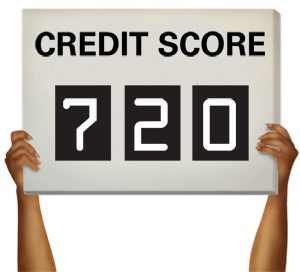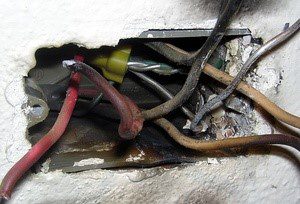Provided by Joseph Cooper, P.A.
Team Cooper Homes
Re/Max Titanium
352-874-5764 or 352-874-6449
Are you properly prepared for buying a home? Do you know about the top 5 things every buyer should be aware of before they buy their home?
In this short report I’ll cover what the banks are looking for before they give you a loan, some of the unforeseen costs that you’ll probably be dealing with, I’ll reveal a quick calculation for you to determine what you can really afford, what to do if you can’t put 20% down on a loan, and finally, how to make sure the house you’re buying is ready to be sold.
Now I know that seems like a lot to cover, but trust me, I’ll keep it plain, simple, and to the point. My goal here is to get you into the house you want.
So what ARE the banks looking at before they give you a loan?
I suppose the most obvious factor would be your credit. But what credit number is good enough for the bank? If you ask 10 different Realtors, you’ll get 10 different answers, but the most common and accurate answer is simply anything above 623.
But you’re probably not going to get a very good interest rate at that score, because like I said, 623 would be around the minimum number just to receive a loan.
If your score is in the 720’s or higher, then you’ve got a good chance of qualifying for a pretty decent interest rate. Anything over 750 would probably be able to easily get a VERY good interest rate.
Do take into account that this is only a guide and different lenders all have different rules, but these numbers are a pretty accurate rule of thumb.
Another aspect the bank will look at is your income-to-debt ratio. This basically means that they want to make sure you’re not spending more than you’re earning, and that they can feel confident that you will be able to pay back the loan.
Generally, banks want the amount of money spent on housing costs (which are your mortgage, taxes, insurance, etc) to be less than 35% of your total gross annual income.
So basically if I’m making $3,000 a month, the mortgage payment, with taxes and insurance, needs to be less than 35% or less of that number. So in this example, the monthly payment for the house would need to be no higher than around $1,050.
My suggestion would be to go to your bank and get pre-approved. There are a few good reasons for doing this. Once you’re pre-approved you will know what your budget is on a home, and you won’t have to worry about getting a loan.
Let’s say that you find a house you love, but your bank wouldn’t approve the loan for the amount of the purchase. This would be devastating. Get pre-approved before you go house shopping.
Most banks also want 20% down on your mortgage, and I’ll be talking about your options if you can’t afford the 20% later in this report.
Are you prepared for the unforeseen costs that you will have to deal with when buying a home?
There are a very wide variety of costs associated with buying a home, and the most common one is the home inspection.
Generally, the seller will volunteer to pay for the inspection because they are happy to be selling their house and are helping you buy it in any way they can; however, there are some sellers who will insist that you, the buyer, pay for the inspection.
An inspection will generally run between $200 and $400, and this is not something you want to get the cheapest deal on. When it comes to inspecting the home you will live in for the next decade or so, it’s crucial to have an honest and accurate home inspection.
You will also want to make sure you state in the contract what will happen if the inspector finds a problem that was not disclosed by the seller. You have the right to insist that the seller fix these problems before the house can be sold.
Now this doesn’t mean that the seller will just up and pay, he/she has the right to insist that you pay as well.
You may also want to state a contingency that if the seller refuses to pay for these problems, you have the right to back out completely from the contract.
Closing costs are another debatable item between buyers and sellers. Since there is no law as to who has to pay these associated fees, it’s left up to the buyer and the seller to negotiate. Finding a seller who is willing to pay for a home inspection AND all of the closing costs is rare.
As a rule of thumb, closing costs are going to run you about 2 to 4 percent of the purchase price. So, to put that in perspective, if you’re buying a $150,000 house, you can estimate the closing costs to be between $3,000 and $6,000.
That’s a good chunk of change, and if you have a seller who is unwilling to pay these costs, guess who is going to pay them?
Sometimes the buyer and the seller will come to an agreement and meet halfway with the closing costs, but that is still an extra $1,500 to $3,000 out of your pocket.
On top of this, you’ll have an application fee, appraisal fee, attorney fees, title fees and more.
The bottom line here is to make sure that you are prepared for these fees and some unforeseen fees that may come into play when buying your home. Put some money back if need be, but be prepared.
If you want to determine what you can probably REALLY afford, there is a simple calculation you can do to achieve this.
Take your annual salary (net not gross) and multiply it two and a half times. If you have a spouse, add in his/her annual salary too. You won’t want to buy a house that has a price tag larger than this number
For example, if my wife and I make $70,000 a year net, then our loan amount shouldn’t exceed $175,000.
Most banks are going to require that, in addition to having that 623 or better credit score, you will need come up with 20% of your loan amount as a down payment. If you don’t have 20% to put down, here are your options…
A lot of people just don’t have that amount of money saved up. If you’re in this position, there are a couple of options that you may want to look into.
FHA loans are government guaranteed mortgages and they only require a 3.5% down payment. This is a lot less than the traditional 20%, but keep in mind that you will still have to pay your closing costs.
I will go ahead and tell you that in order to qualify for this loan, you are going to have to have 2 years of steady employment with a stable or increasing income, a minimum credit score of 623, no bankruptcies in the last 2 years, no foreclosures in the last 3 years, and a mortgage payment no more than 30% of your gross income.
There are also limits as to how much you can borrow and these limits are directly related to the area that you live in.
Finally, you do have to pay a premium of up to 1% of the loan amount at closing. This can be rolled into your mortgage, but keep in mind that your monthly payments will increase if you do that.
You may also be required by your bank to get private mortgage insurance. The premiums on this insurance vary, but the more money you put down on the loan, the more the premiums are reduced.
Another option that may be right for you is a piggyback loan. This type of loan is not very common, but may be a viable option. Piggyback loans are basically two different loans. One loan would cover 80% of the home value, and the other “piggyback loan” would cover the rest of it, minus your down payment.
However, just like everything else, there are disadvantages to these types of loan options. One major disadvantage would be higher interest rates, which means higher monthly payments.
You also may wind up paying a “balloon payment” at the end. This is a final payment that’s a lot bigger than your normal payments. If you do choose to do this, make sure to save up for it.
The bottom line is that buying a house is a very expensive investment, and it’s always better to put that 20% down, but if you can’t afford that at the time of purchase, there are other options. Just be careful to research all of the conditions that go along with these options.
Now I want to cover a few simple methods that you can do to ensure that the house you’ve decided to buy doesn’t have any damage that you’re unable to live with!
The last thing you want is to end up with a house that has a million and one things wrong with it, but you’ve already signed on the dotted line. Make sure you figure these things out before you make any kind of legal agreement.
One obvious solution is worth mentioning again, and that solution is a home inspection. These are very inexpensive (especially for what you’re getting) and if you get a good home inspector, he/she will be able to point out everything that’s not 100% on the house.
The main focus of the home inspection will be the structural, mechanical and electrical condition of the property.
The inspector will check the roof, chimney, gutters, windows, doors, porch, heating, a/c, electric plugs and fixtures, the floors, the walls, the ceilings, bathrooms, kitchen, etc.
You wouldn’t want to be moving into a house that has an unstable foundation or could catch on fire from a hack wiring job. Below is an example of what I’m talking about.
I heard a story about a guy who bought a house that was built in the 1920’s. He fell in love with it because of the original hardwood floors, and he said that’s what “sold” him on the house. What he didn’t do was get a home inspection because if he’d gotten one, he would have realized that the people who lived there before him re-wired the entire house themselves.
I won’t go into the details, but basically the house was a standing fire hazard and the guy had to pay an unexpected $5,000 after he discovered the problem. By then he’d already signed the contract and the sellers were no longer obligated to do anything to fix it.
Had he gotten an inspector, the inspector would have pointed out this very obvious problem that the buyer so easily overlooked.
Home add-ons seem to be another one of the most common problems. Previous owners decide they want to update the home, yet they aren’t licensed nor do they get the proper permits to do this.
If the home you are purchasing has add-on rooms or rooms that have been “renovated”, let that raise a red flag and make sure you inspect their work and question them about how they did it.
In conclusion, you will probably never be 100% prepared for all of the surprises that may pop up when buying a home, but I hope this short guide has given you some insight to the buyer’s world, helped you make some decisions, and helped prepare you for what may come down the road.
Sincerely,
Joe Cooper
Team Cooper Homes, Re/Max Titanium
352-874-5764
352-874-6449
P.S. These 5 things are VERY GOOD to know about buying a home, but there are a lot more elements just like these that I would be happy to help you with. If you’re thinking about buying a home then give me a call and let’s meet up. I’d love to work with you!




